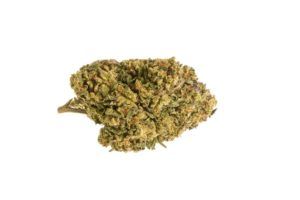Real talk: my dog ate my marijuana, and I’m freaking out.
So what happens if your dog eats your weed, and how worried should you be? Many pet owners are understandably nervous to confess to a veterinarian in situations like this, but also want to make sure their pet will be okay with marijuana in their system. First, do not hesitate to contact your vet if you’re worried about your pet! They won’t rat you out to the police; they will only want to help.
How animals react to marijuana depends on the size of the animal, the amount ingested, and other important factors. If a pet has recently eaten marijuana, then you may need to act fast. So keep reading for a brief overview of the possible effects of marijuana on pets.
Marijuana and Pets Don’t Mix
First, the good news. A number of studies have revealed that cannabidiol (CBD), the non-psychoactive ingredient in cannabis, can actually be used to treat certain disorders in animals. In fact, some marijuana dispensaries even offer CBD dog treats.
While CBD can be beneficial for dogs and cats, the THC found in marijuana can be harmful and even life-threatening for your furry friend. THC is the active ingredient that gets you high when you smoke or eat marijuana, and just like you would never give marijuana to kids, you should never give it to pets either.
Here is what you should do if you know or suspect that your pet has consumed any amount of cannabis.
Step #1: Determine the type of cannabis consumed.
Here is a brief rundown of the types of cannabis products your pet could have consumed. They are ranked from least to most severe:
- Raw cannabis flowers – If your pet swallowed some raw marijuana, even famously potent strains like Green Queen or Pineapple Diesel, then you don’t have too much to worry about. While it’s growing, the THC is not decarboxylated, meaning the THC has not been activated.
- Burned or vaped cannabis – This is not ideal for your pet since there could be some activated THC present.
- Your private stash – If your pet consumed your private stash of marijuana, even medicinal pot from marijuana dispensaries, they could become seriously ill.
- Edibles – These can vary in danger; it all depends on the potency and ingredients in the edibles. If your animal has consumed edibles and is acting strange, contact your veterinarian right away.
- Concentrates – This type of cannabis product is very potent, hence the name. Even the smallest amount can have a negative effect on an animal.
- Chocolate-infused edibles – We all know that chocolate can be toxic to dogs and cats, so this property alone can be dangerous. The edible’s potency will only make it that much worse.
Last year, New York City veterinarian Dr. Robert Proietto told The Dodo, “Marijuana toxicity is no laughing matter and if people note their dogs have gotten into it they should seek veterinary care immediately…It is also important to tell the veterinarian the truth. No veterinarian is going to judge their client for being honest and we will never contact the police. We just want to know what is going on so we can treat the pet to the best of our ability.” Emphasis added.
Step #2: Evaluate the symptoms.
Mild toxicity will present symptoms such as sluggishness, difficulty walking, and excessive salivation. In more extreme cases, your pet may lose significant bodily control or bladder control, experience low blood pressure or slow heart rate, or have seizures. They can even die by asphyxiation on their own vomit.
Step #3: Soak it up.
You can try to soak up the toxins in your pet’s stomach using activated charcoal, which is available at most drug stores. This should soak up any THC that has not yet been absorbed into the bloodstream. Do not attempt this, however, if you have already attempted to induce vomiting.
Step #4: Try to induce vomiting.
If the charcoal did not work, you can try to make your pet vomit with hydrogen peroxide. Give them one teaspoon for every 10 pounds, every 15 minutes. So, if your pet weighs 30 pounds, give them three teaspoons. Do this no more than three times.
Step #5: Seek professional help.
Watch your pet closely. If symptoms get worse, visiting the vet may be the only way to save your pet’s life. Be honest with the vet, giving them as much information as possible.
Step #6: Don’t let it happen again.
Use this incident as a wake up call. Parents who use medical marijuana must keep it out of reach of kids, and pet owners should always do the same.
To this day, 23 states and the District of Columbia have legalized medical marijuana to some degree. According to the United Nations, 158.8 million people around the world – more than 3.8% of the planet’s population – use marijuana. In fact, since the start of the year, marijuana dispensaries in Portland Oregon and elsewhere in the state have sold an estimated $27 million worth of recreational marijuana.
This, however, does not mean that it is okay for your pet to consume. If you have any additional questions regarding Portland marijuana dispensaries, cannabis, and the health risks for animals, feel free to post in the comments section below.



You say if my dog eats my stash whether it be from the dispensary or what there is a serious illness can happen ,why is that ,when it has not yet been decarboxilated?
Great question! According to Caninejournal.com, “reports show that dogs have a higher number of cannabinoid receptors in the brain compared with humans, and it’s been suggested that dogs may be more susceptible to the toxic effects of THC than humans.” Sure is interesting that we need it decarboxylated to feel the effects, but they are far more sensitive to poisoning! source: https://www.caninejournal.com/dogs-and-marijuana/